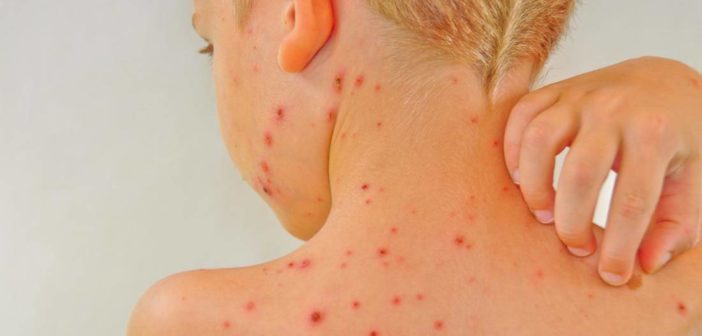What Is Chickenpox
A highly contagious disease, chickenpox is caused by the varicella-zoster virus. While chickenpox is fairly mild in most cases, complications can arise in people who have impaired immunity such as the chronically ill, newborns or pregnant women. It is also generally more severe in adults than in children.
Chickenpox is spread by direct contact or through air droplets from sneezing, coughing etc. The incubation period of the disease is 10 to 21 days. This is how long after exposure before symptoms occur. Patients can be infections one to two days before the rash appears.
Symptoms of Chickenpox
The main symptom is an itchy rash that appears as small blisters. At first the rash will appear like pimples before becoming filled with fluid then progressing to a crusted scab. The rash will usually start on the trunk (chest or back) but can move to to other parts of the body including limbs, face, inside the mouth and genitals.
As well as the itchy rash, your child may have a mild fever and/or sore throat, which can start a few days before the rash appears. Your child will also feel generally tired and unwell, usually lasting about a week. Marks from the chickenpox rash can take an extended period of time to fully heal.
Treatment
Pain relief, rest and plenty of fluids are the recommended treatments for chickenpox. There are also topical treatments such as creams and ointments available from the pharmacy which can ease the discomfort of itching. Encourage your child to avoid scratching wherever possible to avoid infection of blisters and prevent further spread of the virus, as well as scarring.

Your child should stay home from school or childcare until all the blisters have dried up. This is usually around five days after the rash appears.
Because it is a virus, antibiotics are ineffective and in general children with chickenpox do not need to see a doctor. However, in rare cases complications can arise such as pneumonia and inflammation of the brain. If your child becomes increasingly unwell or blisters appear to be infected then seek medical treatment.
If your child is at high risk of complications, an antiviral medication can be administered within 96 hours of exposure to the virus.
Can You Get Chickenpox After Immunisation?
In Australia, chickenpox is part of the immunisation schedule for children, usually given at 18 months. You can read more about chickenpox immunisation in Australia here.
While immunisation minimises the chance of contracting the virus, it is possible to catch chickenpox after immunisation. However, these “breakthrough” cases are usually much milder in severity.
Shingles and Chickenpox
Anyone who has contracted chickenpox can get shingles as it is the reactivation of the varicella-zoster virus. It is a painful rash that usually affects adults on the face, trunk or pelvis.
You can not catch shingles but you can catch chickenpox from coming into direct contact with the fluid of the blisters of someone with shingles.

